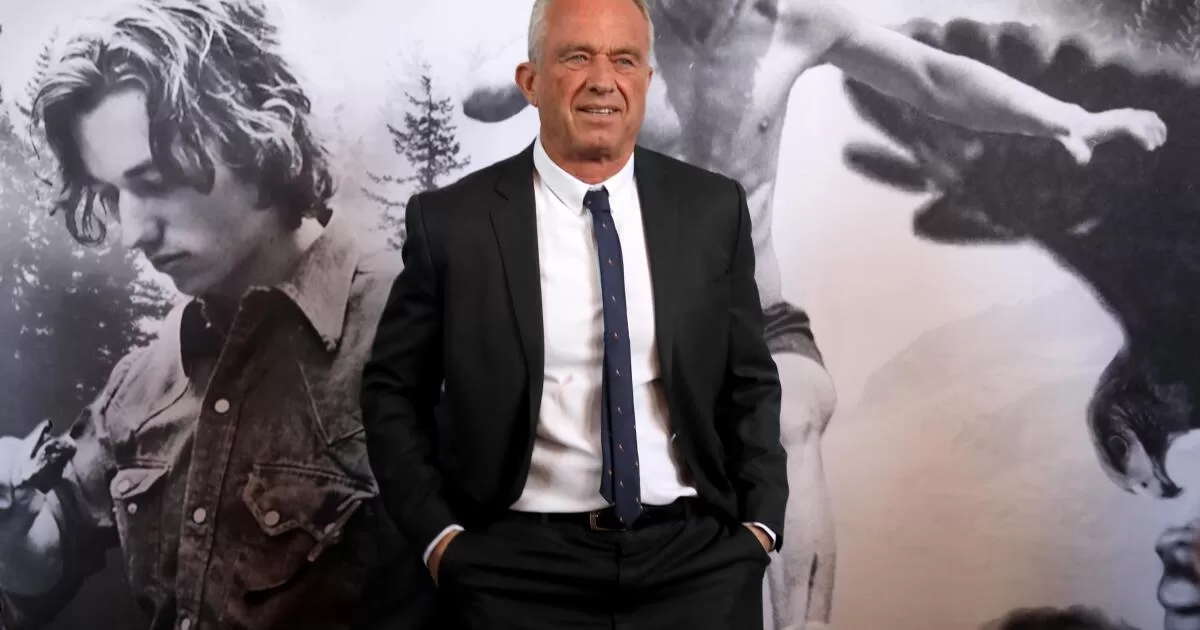Millions of voters are dissatisfied with both major-party candidates, and that has prompted many to flirt with independent or third-party candidates instead.
A Quinnipiac Poll last month found that when voters were offered a choice among five candidates instead of two, 20% opted for someone other than Biden or Trump. Independent candidate Robert F. Kennedy Jr. was the choice of 13%, followed by Green Party candidate Jill Stein, at 4%, and independent socialist Cornel West, 3%.
If this campaign follows the historical pattern, those numbers will decline by election day, Quinnipiac Poll Director Doug Schwartz said. But even if “support for third-party candidates shrinks at the ballot box, single-digit support could be a tipping point,” he noted.
That has Democrats worried, especially about Kennedy.
“In a three-way race, Trump wins, because Biden’s floor is kind of soft,” said Matt Bennett, executive vice president for public affairs at Third Way, a Democratic centrist group. “If Kennedy or other candidates draw even a tiny percentage, they can swing the election.”
The last two presidential elections illustrate the point.
In 2016, 6% of voters cast ballots for third-party and write-in candidates. In the decisive swing states of Wisconsin, Michigan and Pennsylvania, if Green Party nominee Stein’s votes had gone to Democrat Hillary Clinton, the latter would have won the White House.
In 2020, by contrast, the third-party share of the national vote fell to 2%. Voters opposed to then-President Trump coalesced behind a single candidate, Joe Biden. He won the swing states and, with them, the presidency.
The Democrats’ problem is that 2024 has begun to look like 2016.
Kennedy is the biggest challenge. With his famous name, Democratic lineage and a healthy fundraising operation, he’s polling more strongly than any independent candidate since Ross Perot, the data-processing mogul who won 19% of the popular vote in 1992.
Like Perot, Kennedy denounces both major political parties and draws support from voters on both sides.
Kennedy’s positions are an amalgam of conspiracy theories and populism. He has falsely said that vaccines cause autism, that COVID-19 immunization is the “deadliest vaccine ever made” and that chemicals in tap water can cause children to question their gender.
He wants the federal government to provide free child care, lower mortgage rates and push for cleaner energy. He wants to end military aid to Ukraine but strongly supports Israel’s war in Gaza.
Last week, Kennedy said he considers Biden a bigger threat to democracy than Trump.
“The reason for that is that Biden … has used the federal agencies to censor political speech,” he said, referring to government requests to social media companies to remove medical misinformation from their platforms. Kennedy later amended his statement by saying he considers neither Biden nor Trump a threat to democracy.
The Democratic National Committee has mounted a communications blitz to warn disaffected Democrats that the independent is not their kind of Kennedy and that a vote for RFK Jr. is, in effect, a vote for Trump.
“People hear the last name, and they assume that tells them something about his policy positions and who he’s funded by,” a DNC official said.
Michigan state Sen. Mallory McMorrow, in a call arranged by the DNC, said she believes the election will be decided by “a few thousand votes” and suggested that RFK Jr., with no realistic path to the presidency, is running purely as a spoiler.
“What he actually is … is Donald Trump with a Kennedy name slapped on him,” she said.
“He’s turning to Trump megadonors to really support this spoiler campaign,” said Rep. Robert Garcia (D-Long Beach). “Maybe he wants Trump to be reelected. We’re not sure.”
Trump appears to agree.
“I love that he is running!” the former president wrote on his social media feed. “It’s great for MAGA.”
But Kennedy is not Biden’s only third-party problem. The president could also lose votes to Stein or West, both of whom have criticized him from the left.
Stein has been a fierce critic of Biden’s military aid to Israel during the war in Gaza, and her Green Party is already on the ballot in Michigan, which has the nation’s largest concentration of Arab American voters. West, who is running as an independent, faces a harder road to gain ballot access in many states.
The Quinnipiac Poll found that Kennedy’s support comes roughly equally from voters who might otherwise favor Biden or Trump, but support for Stein and West comes mostly from voters who would otherwise back Biden.
So in an election that may be decided by razor-thin margins, Biden’s challenge doesn’t come only from Trump; he needs to woo voters back from Kennedy — and from Stein and West as well.
